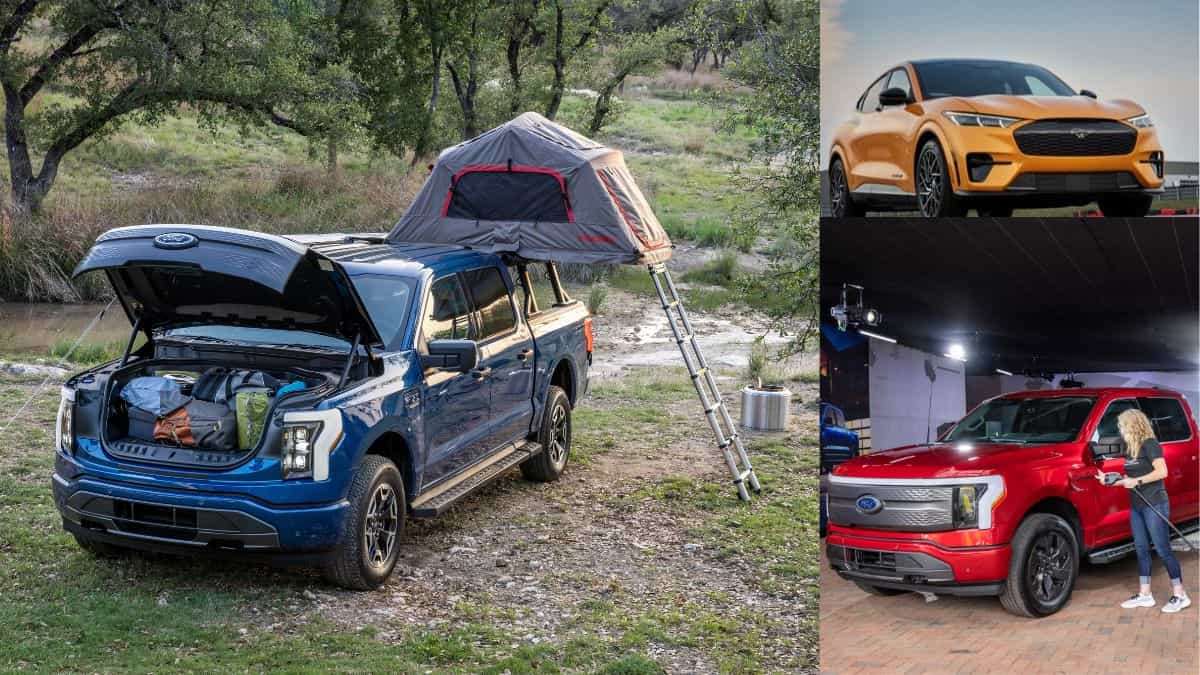I’ll note that this doesn’t mean Ford is abandoning electric vehicles (EVs), but it is still a form of backpedaling in my opinion. Also, to be fair, Ford isn’t the only legacy automaker encountering some difficulty ramping electric vehicle EV production and sales as quickly as they said they would, but this rhetoric seems more like a coping mechanism to me. There are multiple reasons I think this, but one reason above all others makes it clear to me that Ford’s “embrace” of hybrids is not due to customer preference or demand as much as it is to Ford’s inability to meet that demand at a competitive price point. Specifically, Ford’s announcement on hybrids comes just after they announced price cuts on their electric vehicles, which promptly sparked a surge in orders. So I say no, Ford executives are trying to spin the situation. They are unable to ramp production fast enough while their dealership network is too often stifling sales enthusiasm with eye watering markups. Hybrids may be marked up too of course, but they typically will have lower price points than equivalent EVs, and because EVs are starting at higher prices, markups are more impactful on EV sales. Also, by focusing on hybrids (a manufacturing strategy Ford already has well established), Ford can stretch limited battery supply further and make 10 - 100 hybrid (and plug-in) battery packs for every 1 EV battery pack. This has been Toyota’s strategy from the beginning, and though Ford may be mimicking Toyota out of necessity, let’s hope that is all that it is. Toyota has otherwise been a laggard in the move to EVs and that could be Toyota’s downfall.
But as they say, there’s more to it than that. All legacy automakers face a similar dilemma as they begin to transition from purely fossil fuel powered to electrified vehicles, securing enough raw materials and manufacturing capacity of batteries, electric motors and associated controls to meet customer and international market demands or requirements. It is a monumental logistical challenge for auto manufacturers like Ford. Yet, companies, like Tesla, Rivian, or Lucid that only make EVs have something of an advantage since they do not also have to simultaneously manage fossil fuel vehicle production, not to mention the early to market advantages Chinese brands like BYD enjoy (with better developed or integrated supply chains). Then you have the actual customer preferences and expectations that inevitably pose significant challenges during this transitional period of electrification. People are not used to EVs and there is a great deal of learning and explanation or instruction needed for consumers, which is something automakers and car dealers aren’t really in the business of providing. It is simply up to us, as drivers or consumers, to learn unfortunately. Not everyone has the patience or inclination to do that, and as such, resistance is something manufacturers (and governments) should expect and, should they be so inclined, something they should attempt to address directly or in partnership with dealer networks if they want to speed adoption. In addition, there are use cases (like long distance towing for example) that are legitimately a challenging scenario for current generation EVs to excel in. There simply are a number of obstacles yet to be addressed (availability of charging stations, scarcity of pull-in stations for towing vehicles, range/battery capacity, etc.), in addition to the supply chain and production constraints that brands like Ford, Kia, Volkswagen, and others face.
Do you think Ford is trying to spin things in a more positive light? Or do you feel as I do that this is just another example of legacy automakers looking for ways to play the status quo for as long as they possibly can. Please leave your questions and comments below.
Images courtesy of Ford.
Justin Hart has owned and driven electric vehicles for over 15 years, including a first generation Nissan LEAF, second generation Chevy Volt, Tesla Model 3, an electric bicycle and most recently a Kia Sorento PHEV. He is also an avid SUP rider, poet, photographer and wine lover. He enjoys taking long EV and PHEV road trips to beautiful and serene places with the people he loves. Follow Justin on https://www.torquenews.com/kia for regular electric and hybrid news coverage.






Comments
Thank you so much for the…
Permalink
Thank you so much for the information Justin. Apart from these issues, there is one thing I wonder about whether Ford has developed a policy for micro electric vehicles. I wonder if it will develop a low-priced entry-level EV vehicle like Nissan's Sakura, Fiat's Portofino or Citroen Ami.
Thanks for the comment…
Permalink
In reply to Thank you so much for the… by Metehan Eren (not verified)
Thanks for the comment Metehan! And I apologize for the slow response... I don't get notifications when people comment on my stories anymore. I would expect that Ford will eventually develop small EVs, at least for certain markets (perhaps not for the US market since we do not seem to favor them, unfortunately). If any legacy automaker wants to sell a lot of EVs, globally speaking, they must meet the demands of the respective markets, and low-priced, entry level micro sized electric vehicles are demanded in certain markets. Ford may "handle" that demand by partnering with regional or market specific partners, like Chinese EV companies for example, but they won't hold onto market share, eventually, if they don't offer such EVs.